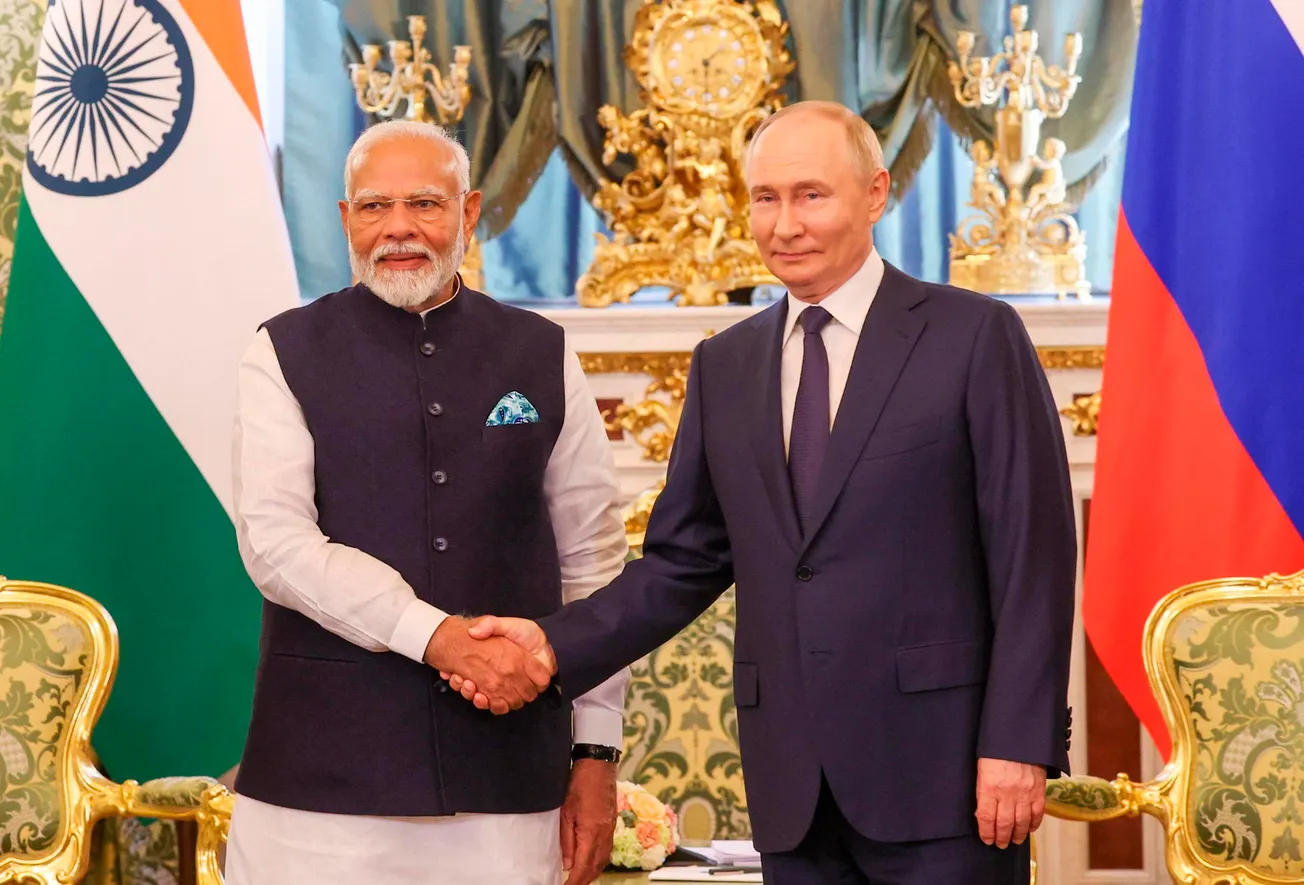As the NATO summit drags on in Washington this week, it’s occurring under the dark and gloomy clouds of failure. The Atlantic Council’s Frederick Kempe summed it up in his Inflection Points column on July 9, titled: “Putin, Xi, Orbán, and Modi Provide a Disturbing Backdrop to the Start of the NATO Summit.” Kempe paints the picture of the visits to Moscow (July 5) and Beijing (July 8) by the new rotating president of the Council of the European Union Viktor Orbán, the July 8-9 visit by Indian Prime Minister Narendra Modi to Moscow, and all this amid the increasing frailty of Joe Biden who is inconveniently the lynchpin behind NATO’s supposedly unified strategy. The trend is clear.
Despite all these failures and fractures, Western leaders are committing to even broader policies of war. During the July 9 summit in Washington, Biden announced a new air defense package for Ukraine, which will include Patriot missile batteries and other advanced systems. It has also been announced that F-16s are now in the process of being transferred to Ukraine, and the NATO Washington Summit Declaration today discussed an “irreversible bridge” for Ukraine to join NATO. As has been stated and restated repeatedly for years now, Ukraine joining NATO is an absolute red line for Russia, and such a decision will only take the world one step closer to World War III. In addition, NATO is further expanding its reach into the Asia-Pacific in preparation to also confront China.
One can almost imagine that these moves are a form of rageful reaction to the growing fragmentation of the West, and the collapsing of their narrative they have so often repeated. Highlighting the Modi-Putin meeting as a particularly hard blow, Bloomberg titles its coverage of the visit: “Modi-Putin Embrace Highlights Failure To Isolate Russia.”
But this rage only affects those who have been sitting on a “very, very high horse,” Helga Zepp-LaRouche said during her Wednesday webcast today. “That arrogance of the collective West—that is the problem, because it is that arrogance which prevents these people from seeing the world as it is, and they think that the only way they can continue running the world as a unipolar system is if you treat all of these other countries and peoples as inferior.”
NATO is now expanding into the Pacific (even though it’s supposed to be the “North Atlantic”), Zepp-LaRouche continued. “Why are they not staying at home? What business do they have to try to expand to a global system all over the world trying to contain Russia and China? The fact that these countries of the Global South do not agree with that and insist upon building their own system—it’s very rational, it’s very understandable, it’s legitimate. Nobody has the right to exert their will on the majority of the world population.” Zepp-LaRouche continued: “NATO is not in a strong position at all, and if there would be any reason among these people, they would pick up on the initiative of Prime Minister Orbán from Hungary who has shown it is possible to negotiate.”
A quick look at the trans-Atlantic-dominated world is enough to give anyone a sense that a new system is needed. The economies of Europe continue to be pummeled amidst a disastrous sanctions policy and a ruinous Green Deal; wars are spreading which threaten to engulf the world in conflict; and the situation in Gaza is increasingly impossible to ignore as anything other than an outright Western-approved genocide which will be remembered for generations. In addition, many of the staunchest proponents of these policies in the West are getting trounced in their elections, and the drama around a despotic President Biden has left few who still believe that there is anything remotely “democratic” about the U.S. government. Perhaps this, and not a lack of “loyalty” or “standing up to autocrats” is the cause behind the emergence of a new system in the world and a sea-change away from the West.
“So, I think this has to be resolved,” Zepp-LaRouche said. “And the best way to resolve it, is to go in the direction of sovereignty, the Five Principles of Peaceful Coexistence are a model out of which all of international law came—the UN Charter is in cohesion with that—and I think the idea to have supranational constructs like NATO, or the EU for that matter,” is no good.
Given the speed of the transformations taking place in the world, there is an opportunity that has not been seen in decades—if ever—to create a new system based on the principles of the 1648 Peace of Westphalia. Peace, human decency, and a commitment to the “interest of the other” must prevail over the kind of imperial rage that is currently being unfurled in all its ugliness. A new security and development architecture must now become the dominant dynamic if the world is to avert its current track toward World War III, and a new generation of statesmen and stateswomen—such as the LaRouche Independent candidates Diane Sare and Jose Vega—are urgently needed on the stage of history.







